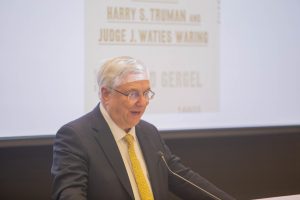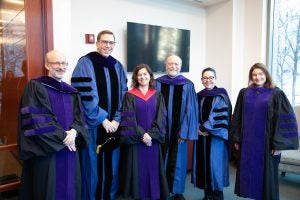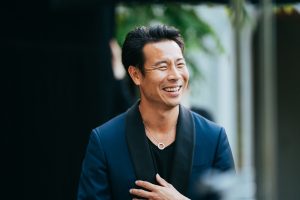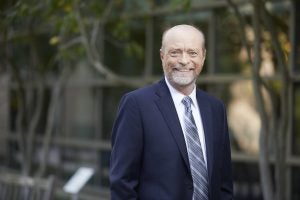
‘Unexampled Courage’: Judge Richard Gergel Sheds Light on Civil Rights History as Georgetown Law Jurist-in-Residence
February 4, 2025 Campus News Civil Rights & AntidiscriminationJudge Richard Gergel of the United States District Court for the District of South Carolina joined members of the Georgetown Law community on Jan. 27 and 28 as part of Georgetown Law’s Jurist-in-Residence program. Now in its second year, the program brings judges from across the country to campus to connect with students and share insights about their legal careers and experiences on the bench.






